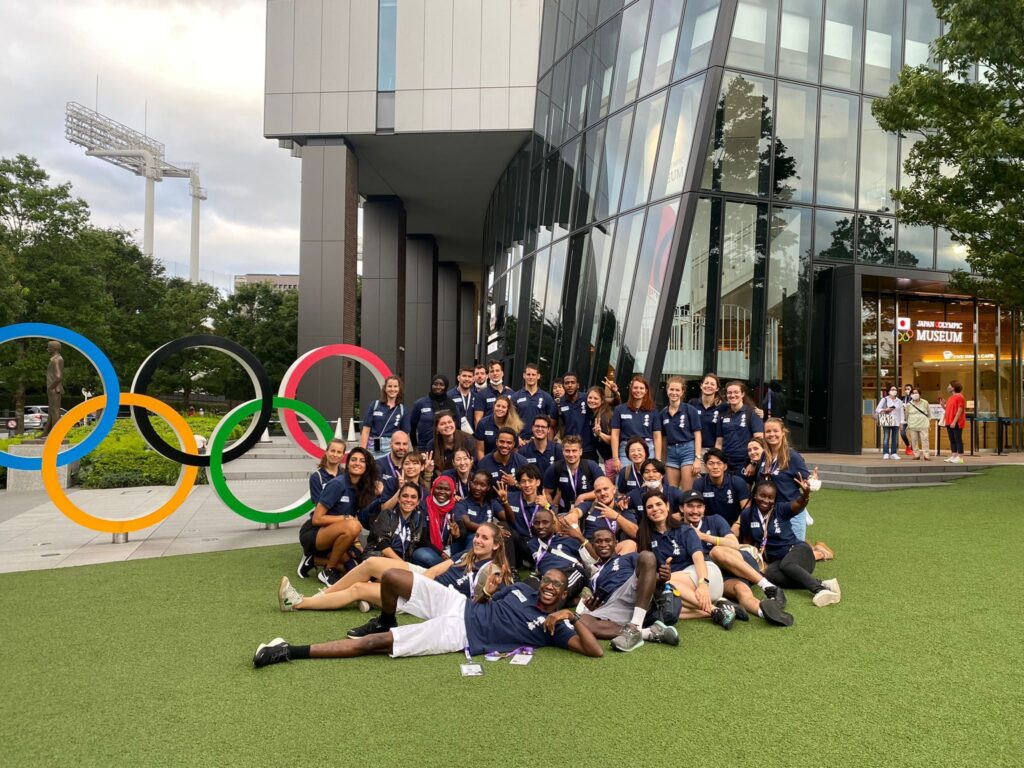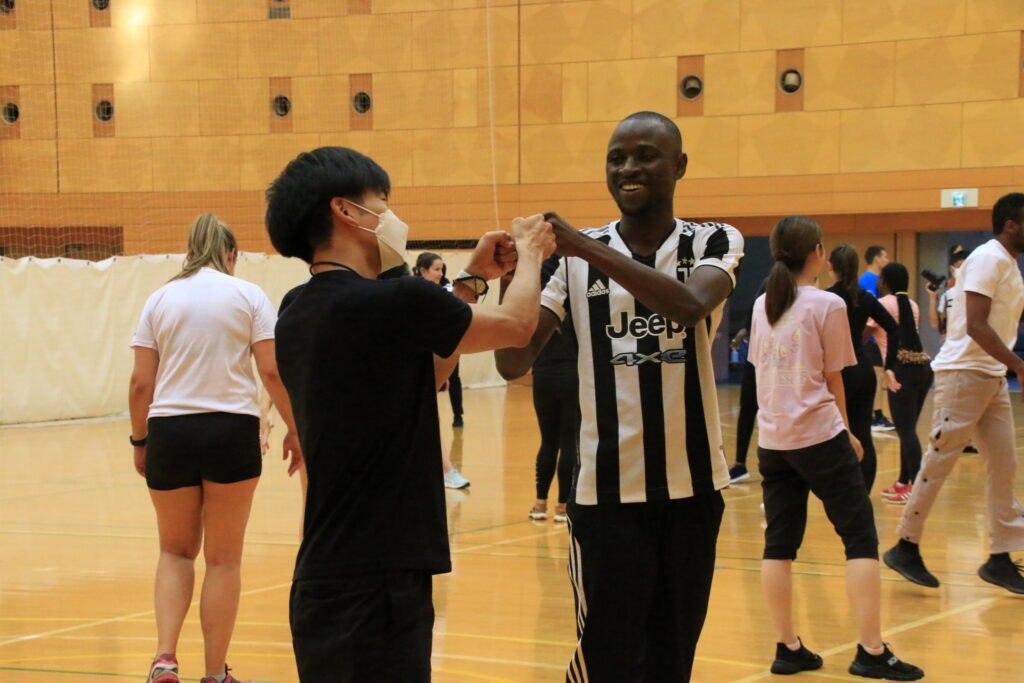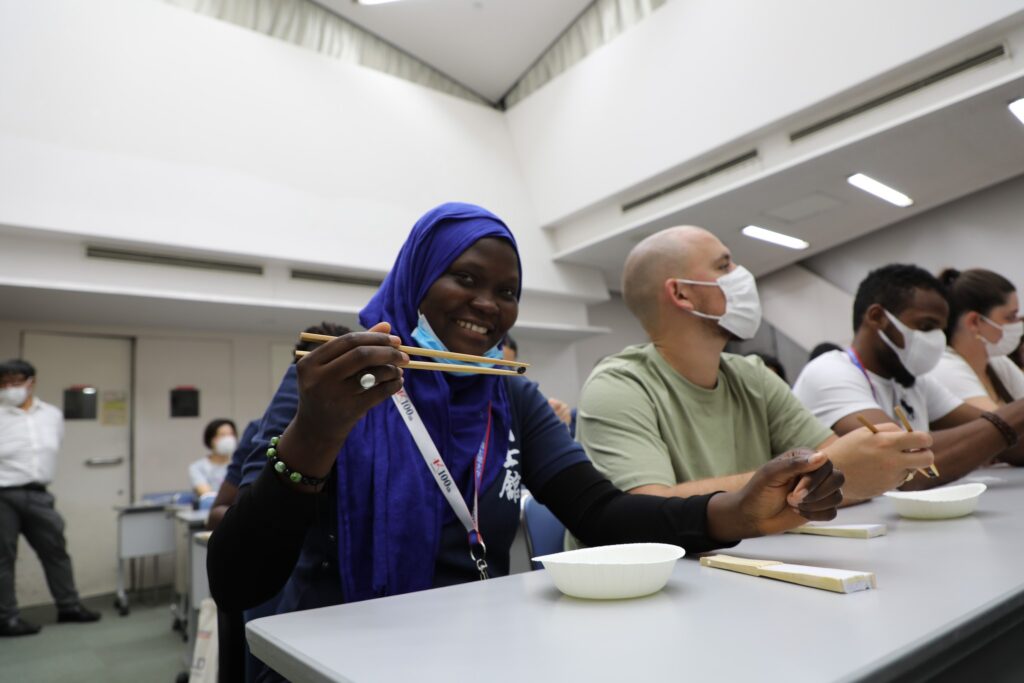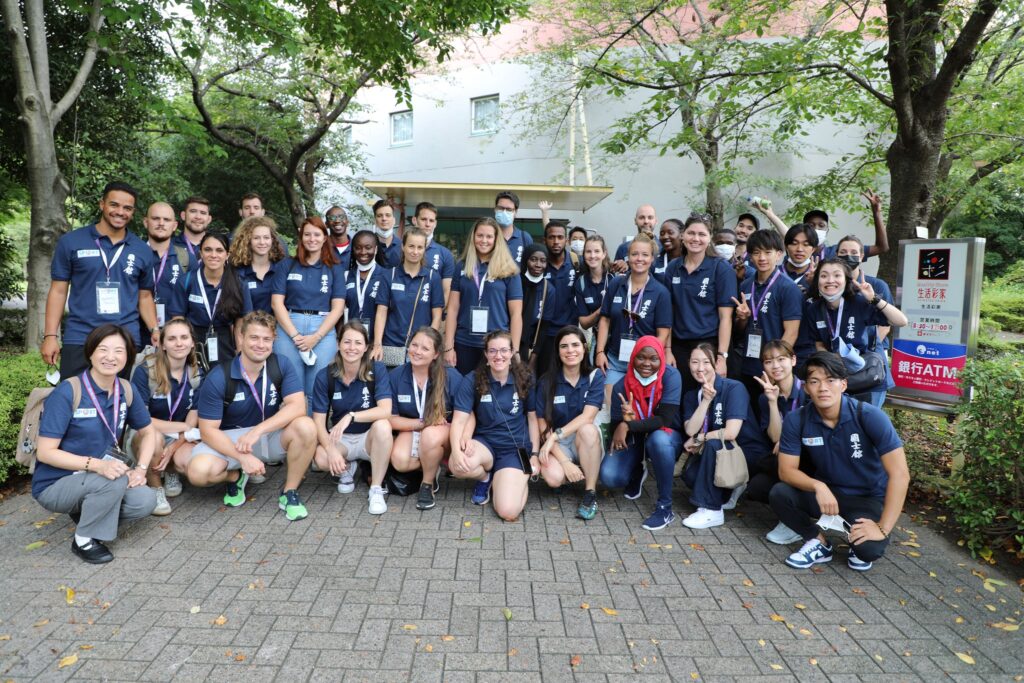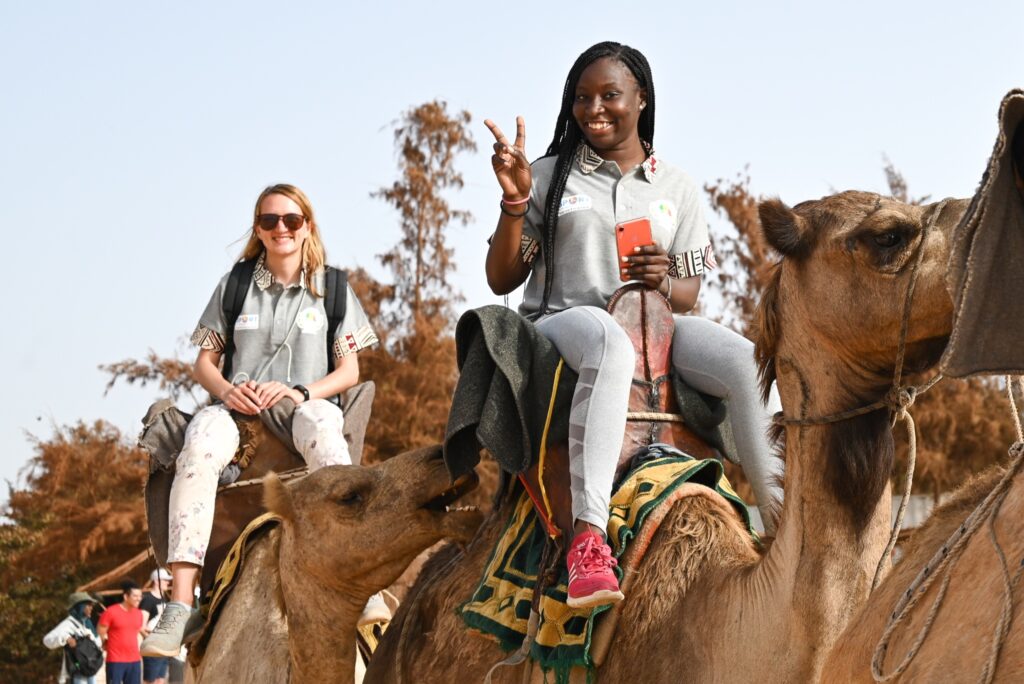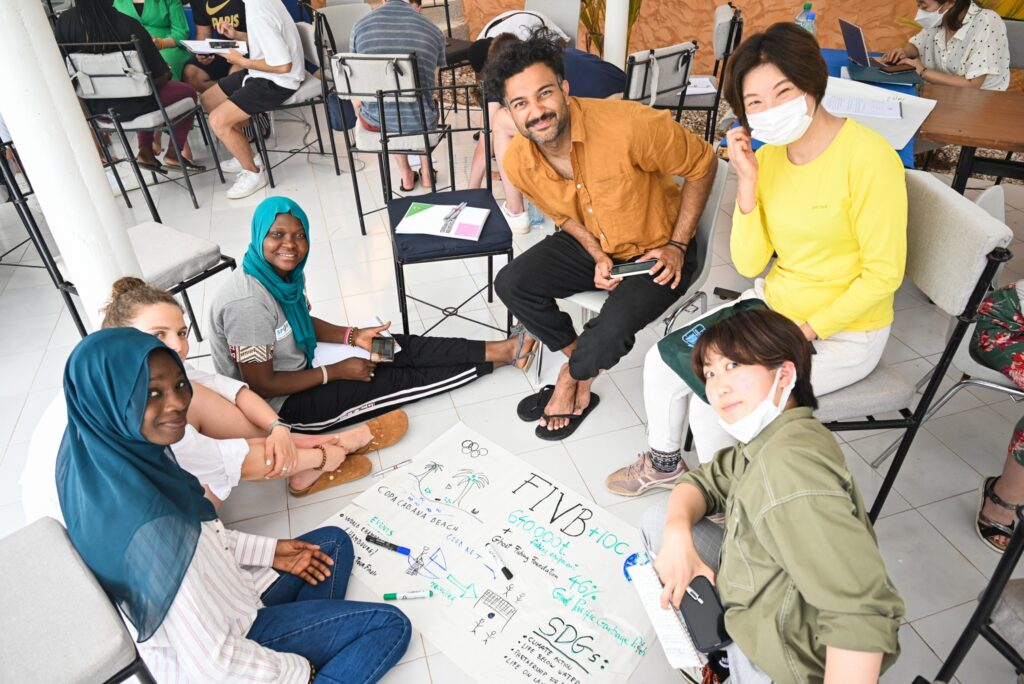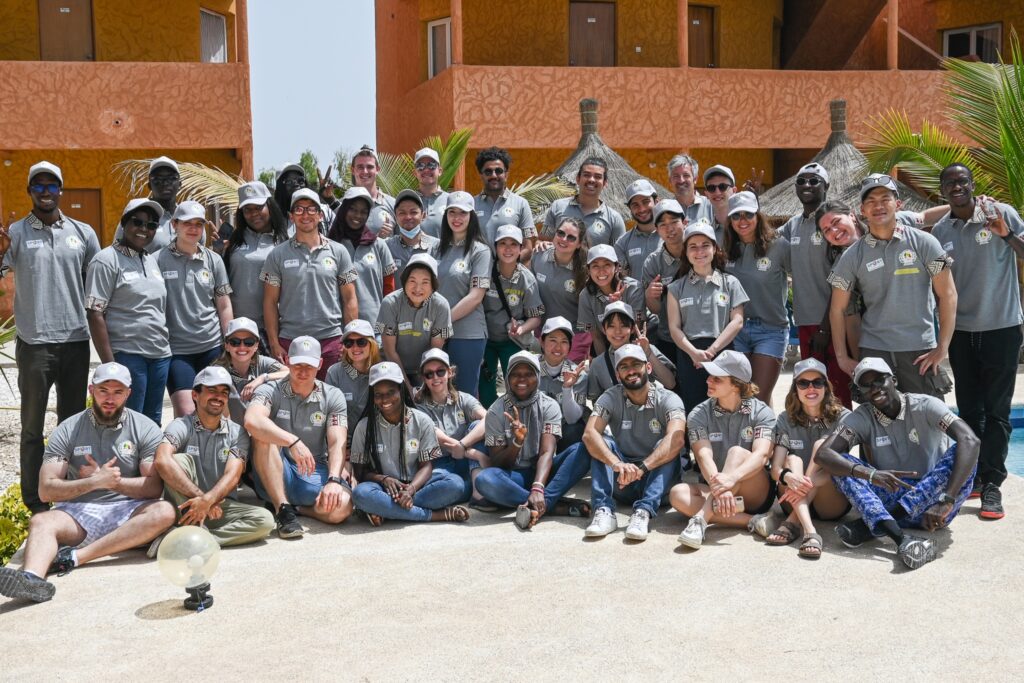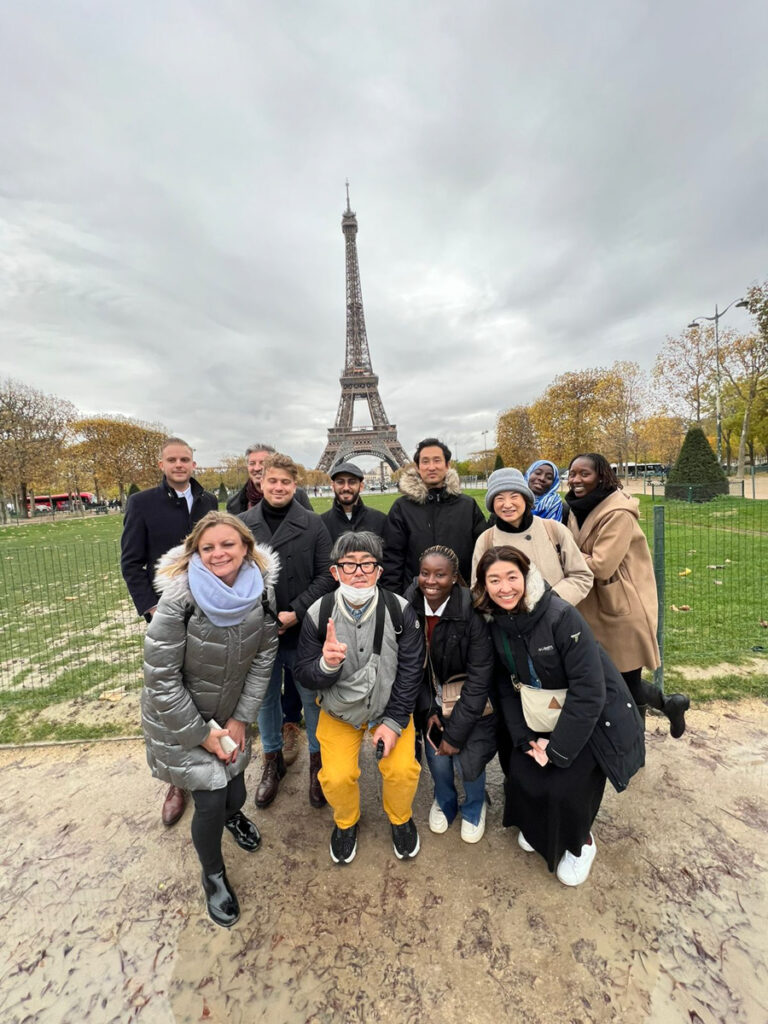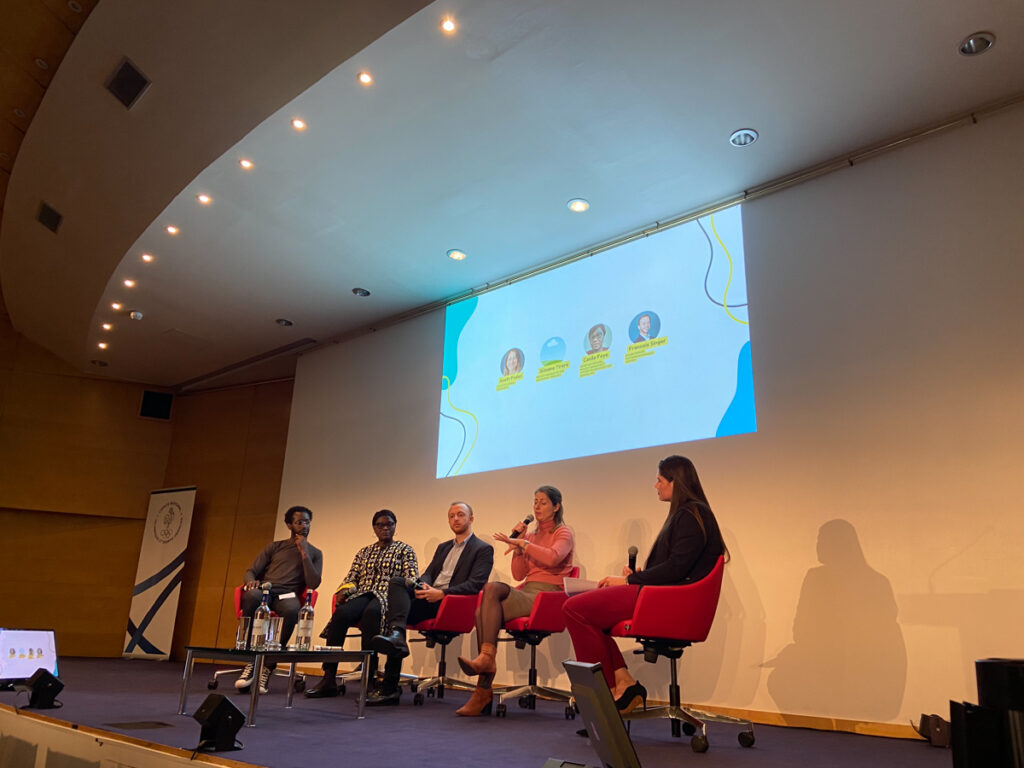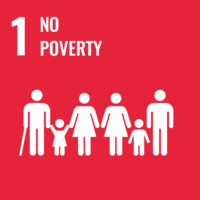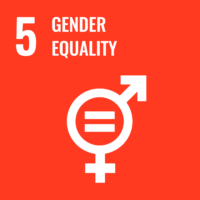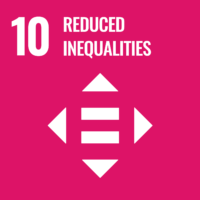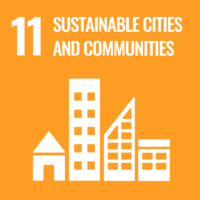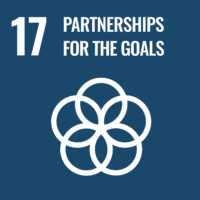2020-2021
The Sport for Sustainable Development kicked off with the creation of the ``Score All17`` toolkit and organisation of domestic activities.
The pandemic postponed our main events but we managed to organise domestic events in Japan, Senegal and Europe.
We recognised the growing contribution of sport to the realization of development and peace in its promotion of tolerance and respect and the contributions it makes to the empowerment of women and of young people, individuals and communities as well as to health, education and social inclusion objectives.
May 2022
2022 was a busy year for the project team. Dakar, Senegal, hosted the international #Sport4SD youth exchange.
From 9-15 May 2022, young people from Europe and Japan travelled to Dakar, Senegal, to meet, debate and exchange knowledge on sport for sustainable development with their peers.
The National Olympic Committee of Senegal was the host of the first international activity of the Sport4SD project. Youth exchange gathered youth leaders, trainers, coaches and NGO staff from three continents (Europe, Asia and Africa) and led them through a number of interrelated educational activities in order to develop their skills on how sport can be used as a tool for achieving sustainable development goals (SDGs).
September 2022
Young leaders from three continents, Europe, Asia and Africa, gathered in Tokyo to learn, explore and contribute to the sustainable development goals using sport as a tool.
The training course in Japan, organised within the framework of the Erasmus+ funded “Sport for Sustainable Development” project, was hosted by the Kokushikan University and held in Tokyo, Japan, on 8-14 September 2022.
A team of participants stayed longer for the Job Shadowing activity which took place from 8 September to 2 October 2022.
Activities ranged from Score All17 manual presentation, team building and workshops on sustainability to visiting the Olympic site and crafting sustainability strategies for the Tokyo and Paris Olympic Games, and Lillehammer and Dakar Youth Olympic Games.
November 2022
It was a long but empowering journey that took us on a global mission, from Europe to Senegal and Japan, to advocate, educate and promote the powerful role sport and youth play in achieving sustainable development goals.
The Sport for Sustainable Development conference was held on 28 November 2022, in Paris, France, hosted by the French National Olympic and Sports Committee. It was followed by the partners meeting which was organised the day after, on 29 November 2022.
#SCORE All 17
Each goal leads
to a new page; click on the SDG you are committed to work on
ACTIVITIES:
Learn more about the domestic activities Sport for Sustainable Development project's partners have initiated in their home countries: Japan, Senegal, France and Hungary.
GOALS:
1) Creation of a training manual for delivering the SDG workshop,
2) Training course in Tokyo, Japan,
3) Local visibility and dissemination activities,
4) Youth exchange in Dakar, Senegal,
5) Closing seminar in Paris, France.
TRANSCONTINENTAL
The project is a collaboration between 5 partners from 3 continents: Europe, Africa and Asia: ENGSO Youth as the coordinator, Hungarian University of Physical Education, Sport and Citizenship, National Olympic Committee of Senegal and Kokushikan University of Japan.
Main objectives of the project:
- Create a platform for sharing and transfer of knowledge in the fields of sport-based non-formal and formal education between partner organisations and stakeholders representing the youth, education and sport sectors;
- Up-skill youth sport trainers, youth workers, youth leaders and NGO staff to increase knowledge, skills and competences in the field of sustainable development through sport and for empowering young people they work within their local communities;
- Raise awareness on the educational power of sport activities together with the importance of using the potential of large-scale and middle-scale sport events also for educational purposes.
- Gather information on good practices in the field of sustainable development through sport and develop an online training manual for delivering the SDG workshop;
- Provide learning and mobility opportunities for disadvantaged young people to experience the educational legacy of Tokyo 2020, Dakar 2022 and Paris 2024 Olympic Games;
- Create legacy activities to support the post-Tokyo 2020 youth sports education and link it with the pre-educational activities of Dakar 2022 and Paris 2024;
- Build capacity and create synergies through partners from different sectors.



